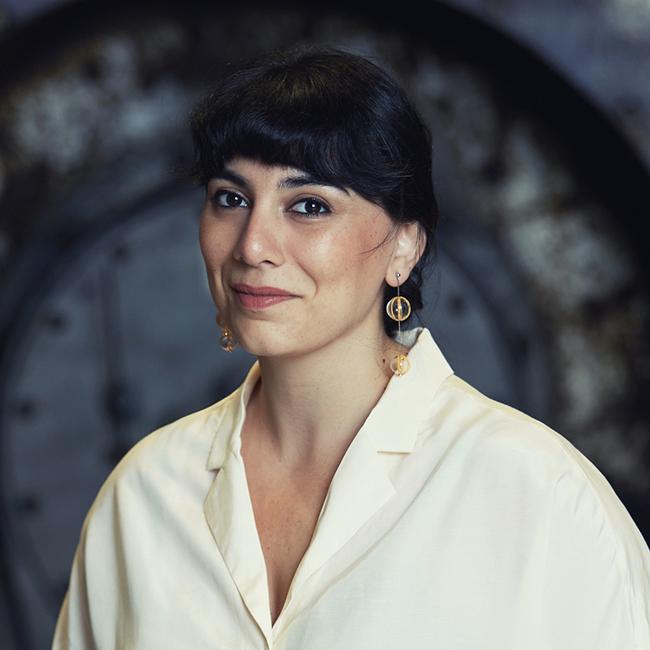Note about optional modules (if available): The below is indicative of the typical modules offered, but is not intended to be construed or relied on as a definitive list of what might be available in any given year. The module content and availability is subject to change.
Year 1 (credit level 4)
On the BA History of Art you will develop an independent critical involvement with works of art and visual culture. Our first-year modules enable you to examine changing conceptions of art and the artist, historically and also in terms of context, ideas, and kinds of practice.
Your first year will introduce you to history of art as a discipline and engage you in discussion of key aspects of contemporary visual culture – including not just artefacts in museums and art galleries, but also architecture, cityscape and landscape, adverts, TV and film, websites, the body, and street style.
Each of our first-year modules is taught by a team of four or five different teachers from the permanent faculty. Our approach to learning, teaching and research is exploratory, innovative and rigorous. In this way, first-year students soon get to know many of the Department’s core academic staff. You will therefore begin your second year with both rich insights from and a comprehensive overview of Department life as a whole.
In the first year, you study the following compulsory modules:
| Module title |
Credits |
|
Modernities
|
30 credits |
|
Seeing and Showing
|
30 credits |
|
Space and Time
|
30 credits |
|
Beyond Boundaries
|
30 credits |
Our second and third-year modules are also thematic in content, and the themes relate to five pathways running through the programme:
- Art and ideas
- Space and place
- The Curatorial
- Sound and image
- Embodiment
Individual modules are identified with one or more of these pathways, to help you in defining your special areas of interest as you proceed.
Year 2 (credit level 5)
In your second year, you study the following compulsory modules:
| Module title |
Credits |
|
Contemporaneities
|
30 credits |
|
The Goldsmiths Elective
|
15 credits |
You then study option Modules to the value of 75 credits from an approved list available annually from the Department of Visual Cultures. This currently includes:
- Goldsmiths Social Change Module
- Beckett and Aesthetics
- Cohabitations/Inhabitations
- Art and Technologies of the Image
- The Fact of Blackness
- Fashion as a Dialectical image
- Ornamentation and Materiality
- Museums, Galleries, Exhibitions
- Popular Modernism
- Patterns of Perception
- Postmodernities
- Radical Imagination & Speculative Voyages
Your fourth option module could be a History of Art module or a Related Study module from another department within Goldsmiths.
Year 3 (credit level 6)
You take two History of Art special subjects and a third module which may be a further History of Art special subject or an option module or a Related Study. You also write an 8,000 – 10,000-word Dissertation on a topic of your own choice supervised by a tutor. Special Subjects include:
| Module title |
Credits |
|
Animating Architecture
|
15 credits |
|
Archive and Spectacle
|
15 credits |
|
Film Fables
|
15 credits |
|
Documentary Lives
|
15 credits |
|
Philosophy and...
|
30 credits |
|
Sexual Poetics
|
15 credits |
|
The Truth in Painting
|
30 credits |
|
Counter Forensics
|
15 credits |
|
Research Architecture
|
15 credits |
Placements
Link your studies to one of the many interesting public institutions through our 'Visual Cultures as Public Practice' module. Your research project could be based at the V&A, The Live Art Development Agency, Iniva, Hackney Museum, the Zoo, amongst many others.
Teaching style
This programme is taught through scheduled learning - a mixture of lectures and seminars. You’ll also be expected to undertake a significant amount of independent study. This includes carrying out required and additional reading, preparing topics for discussion, and producing essays or project work.
The following information gives an indication of the typical proportions of learning and teaching for each year of this programme*:
- Year 1 - 19% scheduled learning, 81% independent learning
- Year 2 - 16% scheduled learning, 84% independent learning
- Year 3 - 14% scheduled learning, 93% independent learning
How you’ll be assessed
You’ll be assessed by coursework only. Normally this consists of essays, sometimes accompanied by creative projects, group projects, multi-media projects, presentations, symposia, reviews, and studio work.
The following information gives an indication of how you can typically expect to be assessed on each year of this programme*:
- Years 1, 2 and 3 - 100% coursework
*Please note that these are averages are based on enrolments for 2022/23. Each student’s time in teaching, learning and assessment activities will differ based on individual module choices. Find out more about how this information is calculated.
Credits and levels of learning
An undergraduate honours degree is made up of 360 credits – 120 at Level 4, 120 at Level 5 and 120 at Level 6. If you are a full-time student, you will usually take Level 4 modules in the first year, Level 5 in the second, and Level 6 modules in your final year. A standard module is worth 30 credits. Some programmes also contain 15-credit half modules or can be made up of higher-value parts, such as a dissertation or a Major Project.
Download the programme specification.
Please note that due to staff research commitments not all of these modules may be available every year.
